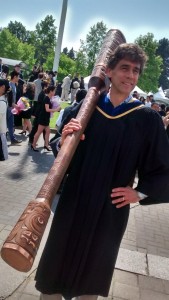Call for Chapters: Precarity, Unions, and Meaningful Work in Adult, Community, and Vocational Education
Submit chapters here https://www.igi-global.com/publish/call-for-papers/submit/6670
Call for Chapters
Proposals Submission Deadline: September 22nd, 2023
Full Chapters Due: December 21, 2023
Submission Date: December 21, 2023
Introduction
“Neoliberalism has had destructive effects on the academic profession. While fulltime academic employment has always been a privilege for a few, the academic precariat has risen as a reserve army of workers with ever shorter, lower paid, hyper-flexible contracts and ever more temporally fragmented and hyper-mobile lives.” (Ivancheva, 2015, p. 39)
According to Standing (2016), starting in the 1980’s, globalisation “has generated a class structure, superimposed on earlier structures, comprising an elite, a salariat, proficians and old ‘core’ working class (proletariat), a precariat, the unemployed and a lumpen-precariat (or “underclass”)” (2014, p. 12) Connecting precariousness with vulnerability Lorey (2011) suggests Precarity is a “category […] that denotes the effects of political, social, and legal compensations for general precariousness” (para. 4). Chinnery explains: “so while we are all vulnerable to whims of fortune, health, violence, and natural disasters, there are some people whose social, economic or political status renders them more vulnerable, more precarious than others” (2015, p. 2). These people, the Precariat, are also susceptible to “the governmental or the structural ways in which precariousness in distributed and managed” (Lorey, 2011, para. 5), what Chinnery (2015) and Lorey (2011) refer to as Precaritisation.
Objective
This edited volume will provide a comprehensive scan of the politics and policies that inform and shape precarity in adult, community, and vocational education. It will explore the in/adequacy of existing theories of adult and workplace education and professional development to capture the experiences of the precariat. It will explore the role of unions and union learning in facilitating and combating precarity experienced by educators. It will showcase first-person narratives of educators who experience precaritisation, each and every day. Finally, it will explore the concept of meaningful work and self-care and describe what meaningful work and self-care look and feel like in this landscape of precarity.
Target Audience
Writers, researchers and practitioners in areas of:
- Adult, community and vocational education
- Employment, precarity and the impact of neoliberalism
- Union education
- Meaningful work
- Self-care
Recommended Topics
This work will be a significant addition to the field addressing politics and policy, theory and practice, first-person narratives, all in relation to the concept and experience of meaningful work and self-care. This work will be a useful resource for adult, community, and vocational educators across a range of contexts.
In no particular order contents will include, but may not be limited to:
• Contexts of adult, community and vocational learning
• Neoliberal and globalised politics and policy as they relate to work, workplace education and professional development
• The role of unions and union learning
• Theories of work, workplace education, and professional development
• Precaritisation, precariousness, precarity
• First-person narratives of experience
• Meaningful work
• Self-care
Editors
Rupert C. Collister, PhD, Ontario Institute for Studies in Education/University of Toronto, University of New Brunswick, & Yorkville University, Canada
Submission Procedure
Researchers and practitioners are invited to submit on or before August 23, 2023, a chapter proposal of 1,000 to 2,000 words clearly explaining the mission and concerns of his or her proposed chapter. Authors will be notified by September 6, 2023 about the status of their proposals and sent chapter guidelines. Full chapters are expected to be submitted by December 21, 2023, and all interested authors must consult the guidelines for manuscript submissions at https://www.igi-global.com/publish/contributor-resources/before-you-write/ prior to submission. All submitted chapters will be reviewed on a double-blind review basis. Contributors may also be requested to serve as reviewers for this project.
Note: There are no submission or acceptance fees for manuscripts submitted to this book publication, Precarity, Unions, and Meaningful Work in Adult, Community, and Vocational Education. All manuscripts are accepted based on a double-blind peer review editorial process.
All proposals should be submitted through the eEditorial Discovery® online submission manager. Submit your proposal here:https://www.igi-global.com/publish/call-for-papers/submit/6670
Publisher
This book is scheduled to be published by IGI Global (formerly Idea Group Inc.), an international academic publisher of the “Information Science Reference” (formerly Idea Group Reference), “Medical Information Science Reference,” “Business Science Reference,” and “Engineering Science Reference” imprints. IGI Global specializes in publishing reference books, scholarly journals, and electronic databases featuring academic research on a variety of innovative topic areas including, but not limited to, education, social science, medicine and healthcare, business and management, information science and technology, engineering, public administration, library and information science, media and communication studies, and environmental science. For additional information regarding the publisher, please visit https://www.igi-global.com. This publication is anticipated to be released in 2024.
Important Dates
September 22nd, 2023: Proposal Submission Deadline
From September 6, 2023: Notification of Acceptance
December 21, 2023: Full Chapter Submission
February 18, 2024: Review Results Returned
March 31, 2024: Final Acceptance Notification
April 14, 2024: Final Chapter Submission
Inquiries
Rupert C. Collister, PhD
Ontario Institute for Studies in Education/University of Toronto, University of New Brunswick, & Yorkville University

 Follow
Follow

#UBC time to lay down the mace in graduation and governance #ubcnews #bced #highered
*Apologies to the medievalists again. Customized below is our semi-annual appeal to UBC managers to Lay Down the Mace:
As we count down to and roll through graduation, can we please remove the mace from convocation and governance at the University of British Columbia? The mace had its day in the first 100 years of this esteemed University but that day has gone.
Dalhousie University is currently embroiled in controversy over its mace, decorated as it is to demonstrate racial supremacy (“the rose, thistle, fieur-de-lys, and shamrock, depicting the major racial groups of our country”). Indigenous peoples and advocates have said enough already.
Some traditions just aren’t worth maintaining…
At the Nexo Knights’ Graduation Day,
Jestro grabbed a sword, a mace, and a spear and began to juggle them… The unimpressed crowd started to boo… Sweat broke out on his forehead…. He let go of the mace, and it flew across the arena. The crowd gasped and ducked… Then … bam! It hit the power grid on the arena wall. The area lights flickered, then turned off. Soon the power outage surged throughout the city.
Yes, this really did happen in a Lego story! And in England, Bradford College faculty members called the admin’s decision to spend £24,000 on a new mace for graduation ceremonies a “crass bit of judgement.”
At UBC, things were questionable again this past year. With an opportunity to follow faculty and staff members’ and students’ proposal to divest from fossil fuel investments, in mid February UBC chose to continue to be a part of the problem of climate change instead of the solution. Still heavily invested. And after chalking up a $22m budget surplus, in April & May UBC jumped the line at Wholefoods to draw $7,230 in grocery bag donations. On 24 April an Open Letter signed by 110 faculty members was submitted to the UBC Chancellor Reappointment Committee questioning the process.
The days of the mace in Convocation and governance are of the past and that part of the past is no longer worth reenacting.
It’s difficult to know where this University now stands or what it stands for.
It is time to retire the mace, symbol of aggression, authority, and war. It’s time to march to graduation ceremonies in late May and November with open and empty hands as symbolic of peace and reconciliation of controversies and roles of the President’s Office.
UBC’s mace is a relic but a relic of what? The mace is symbolic speech but what is it saying about us now?
From ancient times, this club, this weapon of assault and offence, the mace was gradually adorned until the late twelfth century when it doubled as a symbol of civil office. Queen Elizabeth I granted her royal mace to Oxford in 1589. From military and civil power derives academic authority. The rest is history and it is not all good.
Dr. Thomas Lemieux, School of Economics, with UBC’s Mace at the May 2015 Convocation.
It is time to retire the macebearer, whose importance is inflated every year by the image’s presence on UBC’s graduation pages leading to Convocation. In pragmatic terms, if the mace falls into the hands of the wrong macebearer or manager at this point, someone’s liable to get clocked with it.
Is UBC’s mace still a respectable appendage to Convocation?
Remember, since that fateful November day in 1997, just five months into Martha Piper’s Presidency, when student activists put their bodies and minds on the line at the APEC protest, Tuum Est adorns both the can of mace sprayed in their eyes and the ceremonial mace that the President’s Office is eager to carry across campus every November and May.
Is it not time to retire the mace?
Comments Off on #UBC time to lay down the mace in graduation and governance #ubcnews #bced #highered
Posted in Academic freedom, Academic Labor, Accountability, BC Education, Budgets, Commentary, Critical University Studies, Faculty, Governance, Maces, Shared governance, Students, Working conditions
Tagged Academic freedom, Faculty, Global Warming, Governance, Protests, Students, University presidents, Working conditions